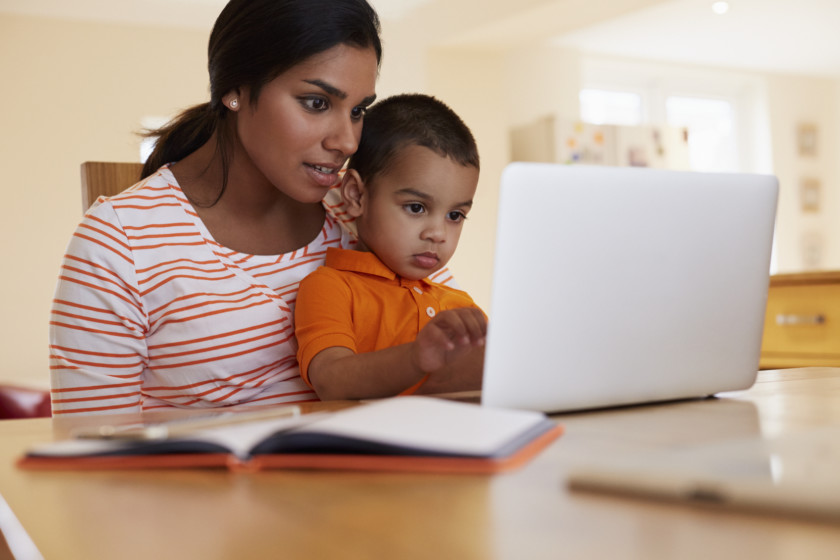As American society becomes increasingly dependent on digital technology for everyday tasks, sometimes it seems like screens are taking over our lives. Many people have worried about the negative impact of technology’s constant availability, especially in the case of young children.
Screen time is not the same as watching TV

For years, the conventional wisdom was that too much screen time has a negative impact on a child’s development. But now, a new study released by the American Academy of Pediatrics (AAP) on Friday challenges that claim and asserts that more screen time can mean more stable children.
The strongest argument for the AAP’s new claim is that “screen time” is no longer synonymous with “entertainment.” Children now use their screens for a variety of reasons — to interact with physically distant relatives via Skype or FaceTime, to play educational games for school, to do puzzles — a host of things that can be considered social or developmental exercises.
Families should decide rules about screen time themselves
Over the past decade, the AAP has revised the ways it looks at children and families regarding screen time. Instead of advising strict limits on children from the ages of 0-2 and advising only an hour of screen time to children aged 2-5, it now recommends that families come up with a plan that budgets children’s screen time according to that family’s particular needs.
The AAP’s guidelines for a “family plan” emphasize the importance of media as a communal experience for families. Parents should pay regard to media’s content and its context before presenting it to their child. Families are encouraged to “test apps before the child uses them, play together, and ask the child what he or she thinks about the app.” By engaging children in conversation about media and screen time, parents should be able to teach them from a young age not to abuse technology’s benefits.
The key to success is teaching children responsibility
Of course, there are still drawbacks to allowing children more screen time. A recent study released by Common Sense Media found that most teenagers use digital devices at an average of 9 hours a day. Teenagers absorbed by their devices often become irritable and difficult to communicate with. This of course does not help as they enter adulthood and find more difficult (yet incredibly necessary) to be engaged with the world outside of their screens.
So no, this new study does not mean that parents can now let their young children consume media with reckless abandon. It just further confirms long-held wisdom that if parents do not teach their kids self-control with regard to screen-time from a young age, then as these children get older, their minds will enter into a state of arrested development.


